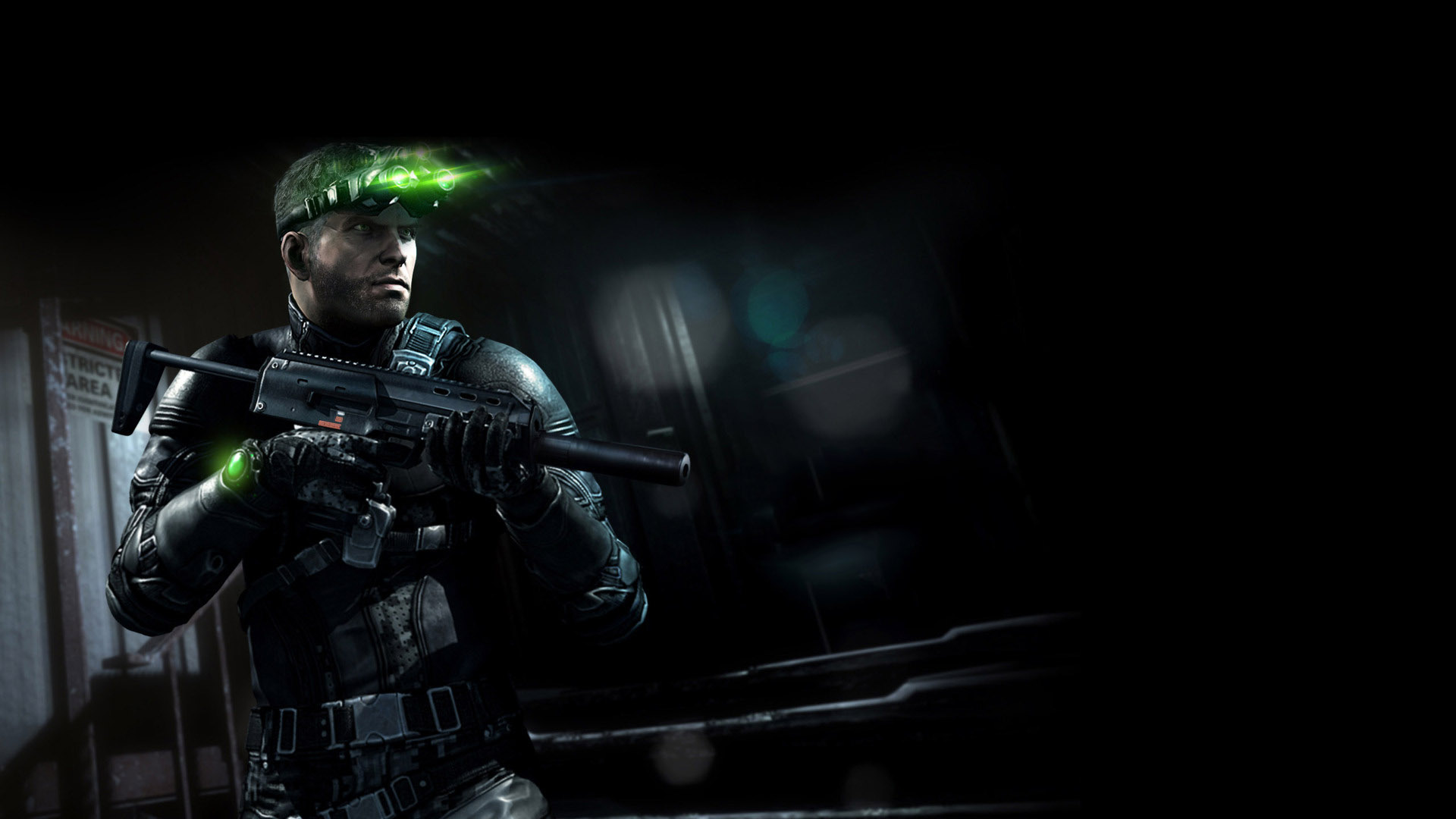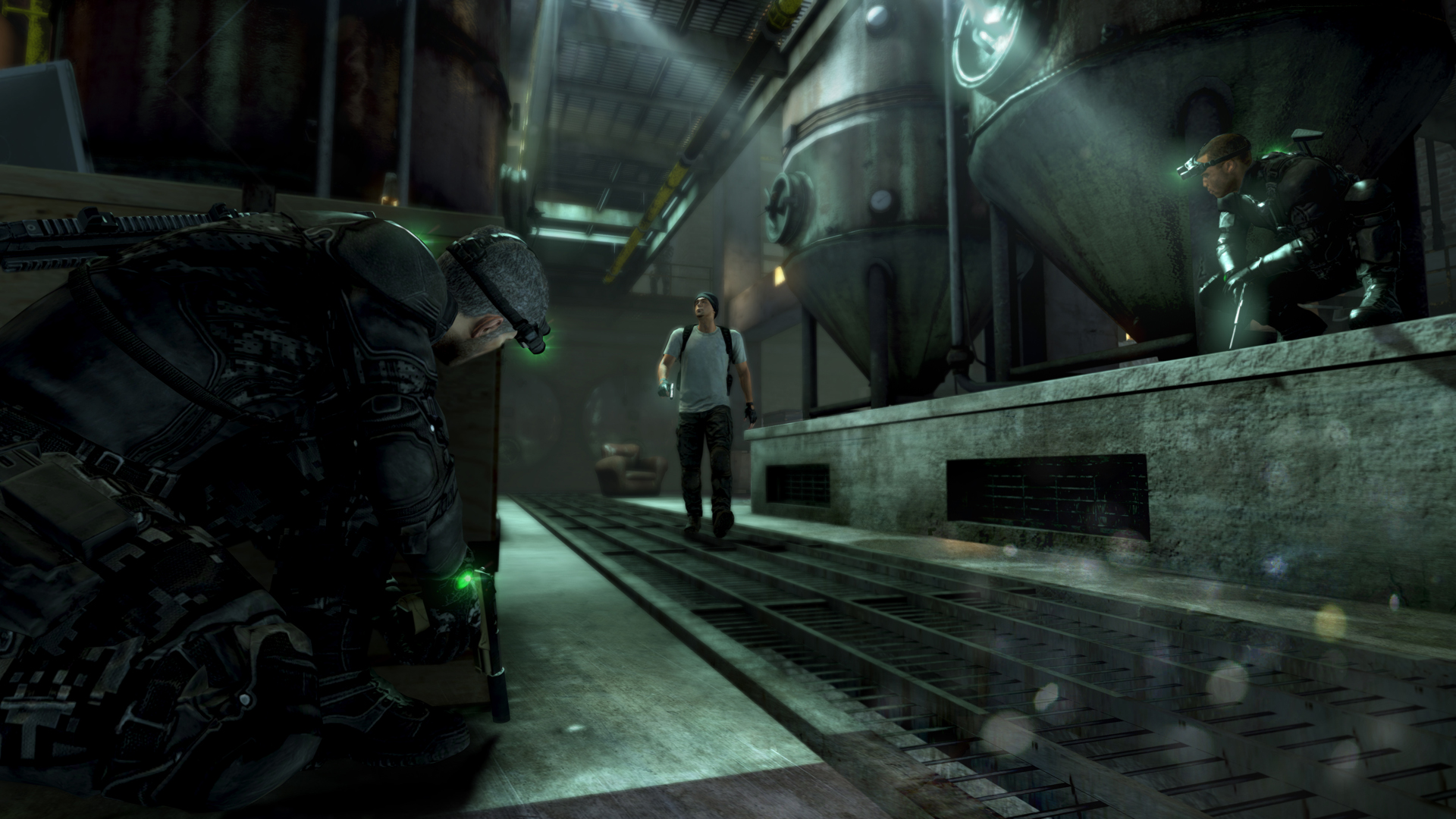
One franchise that has been under the public microscope a bit lately is Splinter Cell. Whether it’s because people would like a new sequel that continues the story, a remake, a remastered collection, or all of the above. There is no secret about the fact that the Splinter Cell series is still one of gaming’s most iconic and acclaimed franchises of all time. Its unique blend of spy-thriller stories, excellent production values, and deep stealth mechanics that rarely saw any sort of equivalent are what made it so popular.
The Metal Gear Solid games aside, Splinter Cell enjoyed a solid decade of being virtually unchallenged in its genre. That said, the Splinter Cell games were quite linear in their design. They all had levels designed to be completed from the beginning to the end, which nowadays seems like a fairly antiquated design philosophy to many. At the end of the day, you may not think there’s anything wrong with that (and I would agree with you) but it does beg the question, with all of the rumbling and swirling of rumors that Splinter Cell might be on its way back in some form, would a more modern-style open world format work with Splinter Cell?
The answer to this is obviously subjective and depends on a number of things, but what I will say is that it could very well work. It could also screw everything up. If you look at the open world game genre as a whole you will discover that there are a lot of games that don’t really utilize their open world setting in a way that makes it feel like it matters, or is in any way organically imperative to the quality of the experience. This was more so common in the 7th and 6th gaming generation – when open world mechanics were still being figured out. Nowadays you generally have a pretty solid playbook to follow when it comes to how an open world game should play in order to truly feel open. games like Horizon: Zero Dawn are good examples of ones that nail that type of setting. So the best way to look at this is through the lens of modern open world games that largely have figured this out.
A Splinter Cell game in this sort of style might not be necessary entirely. if you look at the core tenants of what make a Splinter Cell game good you will see things that maybe allude to the idea of an open world game as a logical next step. Having lots of ways into a facility with branching paths and multiple types of enemy combatants to watch out for all does seem to lend itself well to the idea of an open world because the more space you have in theory the more options you have when it comes to executing whatever your objective is. But not so fast. While it is true that Splinter Cell games pride themselves on giving the player lots of agency over how they complete certain objectives, none of those objectives tend to revolve around traveling massive distances, exploring vast landscapes, or any of the other things that you tend to see in bona fide open world games.
To make a Splinter Cell game open-world in the conventionally understood sense seems to me like it would run a very high risk of feeling too big and unnecessarily vast when your handful of objectives are all things that tend to be done indoors or within the bounds of some sort of enemy facility. I mean what exactly is the point of having miles and miles of landscape surrounding an enemy facility when your objective is to sneak into the facility and take out a high-level target or to steal some piece of highly sensitive Intel? I can hear the reviewers now talking about how the game has so much unused potential. going open world for the sake of going open world just because it’s more popular nowadays could be a huge mistake for a game like Splinter Cell. Mixing two things together might not necessarily work just because they’re both good things.
That said, there are games that took this approach and stepped away from their more linear level designs and it worked out. games like Metal Gear Solid 5 for instance. Despite the problems that Metal Gear Solid 5 has story-wise and maybe in a couple of other areas, its open world design ended up being one of its strongest elements despite the fact that almost no Metal Gear fan was really asking for that – and many of them (including myself) were a little confused by it at first. Regardless, the freedom That Metal Gear Solid 5’s design introduced into the gameplay was nothing short of phenomenal for the franchise. having the freedom to sneak around enemy camps from a huge distance and observe enemy patrol routes added quite a bit of depth to the experience and I could see Splinter Cell benefiting from those ideas in a similar way.
That said, Splinter Cell has never really been about large-scale battles that Metal Gear Solid 5’s infiltration missions could sometimes turn into. It was always more about focusing in on those moment-to-moment decisions about whether you should drop down from that ventilation shaft or wait a while longer. Should you take out that guard that’s in your way and risk his body being discovered later or should you just find a way around them and avoid the situation altogether? Should you disable a security system which might put guards on high alert or should you just try your luck at sneaking through it all? These are the decisions that make up the better moments of the Splinter Cell franchise and you don’t really need an open world for any of them. What you do need is a highly realistic, well-orchestrated sandbox that presents you with lots of options but also remains focused on those situations and the consequences that arise from the strategies you choose.
So to me I think the best way to approach a modern Splinter Cell game (if one is ever made) is not so much to take pages out of the Metal Gear Solid 5’s playbook as much as it is perhaps taking pages out of the Hitman’s playbook. Those games really get the balance right between being open and being focused, And I think Splinter Cell goes for a similar balance when it’s at its best. Giving Sam Fisher a nonlinear level to progress through with lots of options and paths and tools to alter various situations is totally necessary, but to blow it open to something far past that would run an unnecessary risk of making the game feel big for being big’s sake, and that’s not something you want in a game like this.
Hopefully whatever the next Splinter Cell game ends up being is something that you could compare one to one with Hitman rather than comparing it to something like Grand Theft Auto. Not only would that get in the way of the focused tactical experience that a Splinter Cell game is supposed to be, but it would also suck development time away from making sure that the game is good and putting it into making sure that the game is big, which I know is a trade-off that the developer tends to make perhaps too often, but for Splinter Cell I just don’t think it would be a good fit.
Note: The views expressed in this article are those of the author and do not necessarily represent the views of, and should not be attributed to, GamingBolt as an organization.















